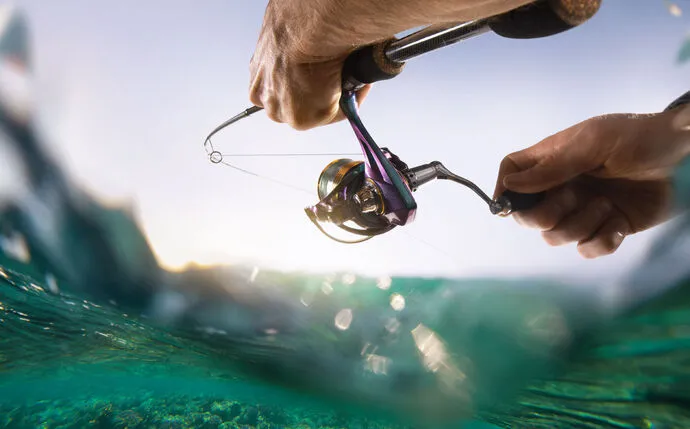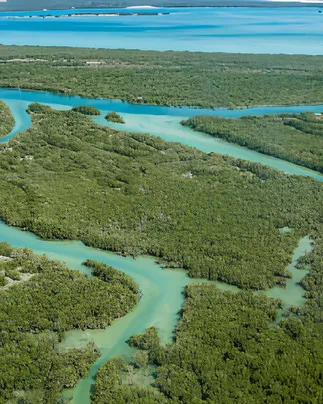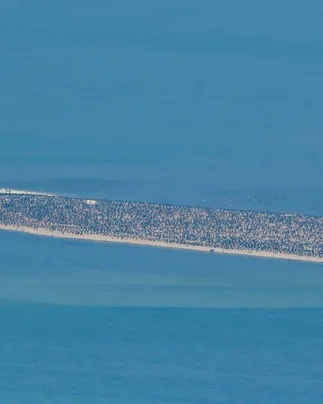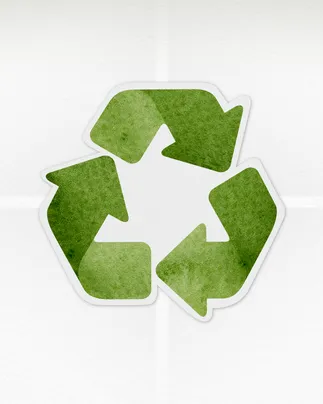The Environment Agency – Abu Dhabi (EAD) has issued Decision No. (4) of 2023 of the Chairman of the Board of Directors of EAD, regarding the regulation of recreational fishing in Abu Dhabi. The regulation aims to support recreational fishing activities and promote marine fishing sports in the emirate.
The provisions of the decision will apply to recreational fishermen and the organisers of marine fishing competitions across Abu Dhabi. The decision prohibits the practice of recreational fishing and the organisation of marine fishing competitions in the emirate’s waters without obtaining a permit from EAD.
The decision defines that recreational fishing can be practiced by anglers or users of pleasure boats. The recreational fishing gears may include line and hooks or spearguns while practicing free diving, or by any other methods specified by EAD, whereas conducting marine fishing competitions is limited to legal persons working in the field of marine activities.
The decision specifies the terms and conditions for obtaining a recreational fishing license: the applicant should not be under 18 years old; however, those below that age are allowed to accompany an adult holding a valid recreational fishing license. A license request application must be submitted to the EAD according to the relevant form along with the necessary documents. Applications for both an annual or weekly recreational fishing license can be submitted through the Tamm government services portal.
In order to obtain a permit for marine fishing competitions, the decision stipulated that the organisers shall be responsible for safeguarding the event by providing necessary arrangements, tools and equipment for security and safety and any other requirements specified by EAD. An application must be submitted to the EAD according to the relevant form, attached with the relevant documents, and information on the proposed location, date and time of the competition. Organisers must specify the type and quantity of the targeted species, fishing tools and gears that will be used in the competition and the number of participants. Applications must also specify how they plan to dispose of the fish caught and any other details that the applicant considers relevant.
Licensees must abide by the terms and conditions as specified by the EAD in the fishing license or the fishing competition permit, whether in relation to the number of people, number of trips, fishing sites, types and numbers of fish and marine species allowed to be caught, environmental requirements, health and safety or any other relevant information.
The internationally recognised diving flag must also be displayed when spearfishing. There must be at least three people - a driver and two holders of a recreational license for using speargun - on board the boat while fishing with a speargun. Upon completion of the fishing trip, a report with details of species and quantities of caught fish species is to be submitted to EAD through the means specified by the agency.
Valid recreational fishing licenses or marine fishing competition permits must be presented upon request by an EAD employee or other competent authority. This also applies to holders of internationally accredited license for free diving.
A recreational fishing license or a marine fishing competition permit must be used by the licensee only and should not be used by anyone other than the licensee. Fish or marine species caught must not be disposed of until returning to land or reaching the anchorage or landing area and should not be sold. This is in addition to not catching or keeping marine species, or any part thereof, for ornamental purposes.
Pertaining to fish species and quantities allowed for recreational fishing, the decision referred to Ministerial Resolution No. 580 of 2015 regarding the prohibition of fishing, selling and marketing smaller sizes of fish that are below the minimum length allowed, and any relevant legislations that regulate fishing seasons or sizes, and adherence to the permitted daily fishing quota of 24 fish species of per person, and per pleasure boat as indicated in the decision.
The decision also prohibited fishing, trading, keeping or causing damage to any of the types of marine living aquatics that were specified by the decision, which include: painted sweetlips, yellow grouper, red coral, sea horsefish, parrotfish, sharks and stingrays of all kinds, sea turtles, whales and dolphins, dugongs and corals.










